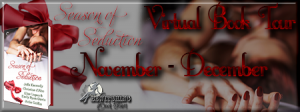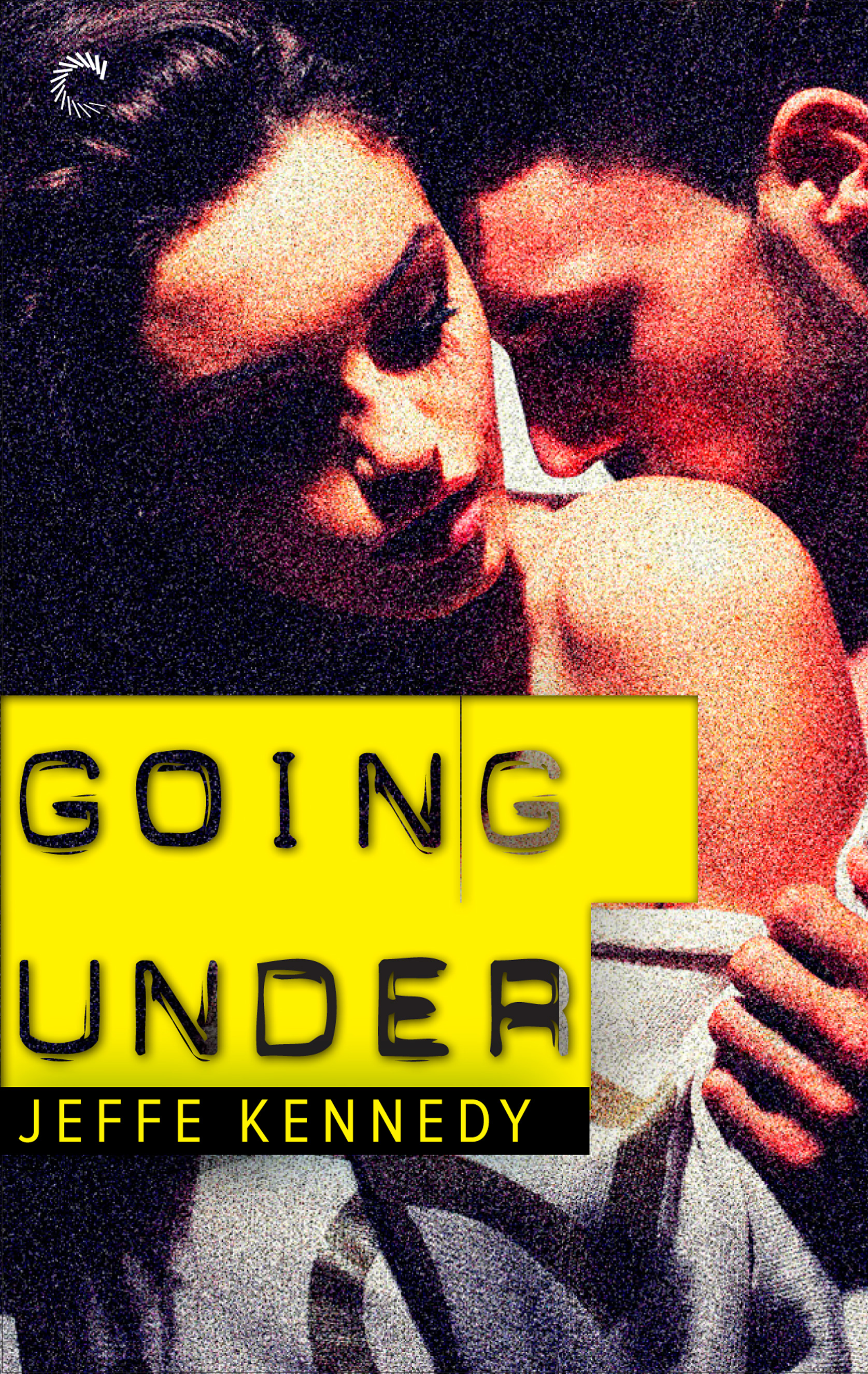

Fie on the Fiesty Heroine! Rah-Rah for Resilience!
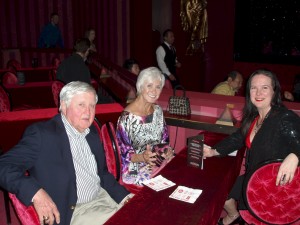 I’m over at the Contemporary Romance Cafe today, talking about why resilience is the quality I most admire in heroines.
I’m over at the Contemporary Romance Cafe today, talking about why resilience is the quality I most admire in heroines.

Why Writers Shouldn’t Tell Readers How to Buy
 I took this picture in a roadside stand in Hatch, New Mexico on our way from Santa Fe to Tucson. My mom needed a new ristra – the name for these bundles of dried chile peppers – and I texted this to see if she liked this variation with the dried corn husk pieces. It ended up being such a cool image, I thought I’d use it here. One of the things I love about living in New Mexico is the variations on what have been traditional Christmas themes for me. I’ll try to keep posting local color holiday photos throughout the month.
I took this picture in a roadside stand in Hatch, New Mexico on our way from Santa Fe to Tucson. My mom needed a new ristra – the name for these bundles of dried chile peppers – and I texted this to see if she liked this variation with the dried corn husk pieces. It ended up being such a cool image, I thought I’d use it here. One of the things I love about living in New Mexico is the variations on what have been traditional Christmas themes for me. I’ll try to keep posting local color holiday photos throughout the month.
Every once in a while, an author will succumb to the temptation to write a post about how readers can help their careers.
If you’ve been around the internet communities of readers and writers, you’ve seen them before. Or heard about them. The latter occurs because word tends to travel among people annoyed by such things. Which a lot of people are.
Now, let me go on record here as saying I’m a big believer in asking for help.
Every one of us needs help at some time or another and it’s usually a big mistake not to ask for it. Pride can get in the way, with people not wanting others to know their weaknesses and need for help. Many of us were also raised with the idea that asking for something from other people is akin to begging and not working for what you want.
Amanda Palmer addresses this idea beautifully in her Ted talk on The Art of Asking. If you haven’t listened to it, I highly recommend you do.
There’s a fine balance in the commerce among human beings between giving and receiving vs. selling and buying. The transactions are the same in essence, yes? In both cases, we exchange something, usually of value. The sticking point is whether we exchange something back again, to compensate the other. Arguably, there is always a “price” on a gift – whether it’s the expectation of gratitude, or later recompense or a trade of some other kind.
Only an anonymous gift is truly free of all strings.
But that’s a side argument because we’re talking about selling and buying. Between writers and readers, there is an expectation that readers will buy our books. (Yes, I’m leaving out fan fiction, free stories, etc. – for a person who earns their living as a writer, selling books is how it happens.) In that sense, we’ve already made the request. I might be standing on the street corner, with my cup full of matches and a stranger gives me a penny for one. Presumably that person wanted the match enough to pay a penny for it, but I asked first. I stood out there and made the proposition.
Just as I do with my stories.

Jeffe’s Hateful Advice for Crawling Out of a Writer’s Slump
 Winter arrived with a vengeance to my high desert home last week, making for gorgeously frosty vistas.
Winter arrived with a vengeance to my high desert home last week, making for gorgeously frosty vistas.
I’m over at Word Whores today, talking about the only way I know for breaking a writer’s slump. It’s terrible advice, really. I won’t blame you a bit if you don’t go look. Seriously.
Embracing New Christmas Traditions
I’m over at Nikki Brandyberry’s very fun blog today, talking about how my ideas of Christmas celebrations have changed over the years – and why I finally found the way to write a Christmas novella.

My Shameful Secret – Why I Don’t Really Celebrate Writing Milestones
 I’m over at Word Whores this snowy Sunday, exposing my shameful secret about how I feel about celebrating my writing milestones.
I’m over at Word Whores this snowy Sunday, exposing my shameful secret about how I feel about celebrating my writing milestones.
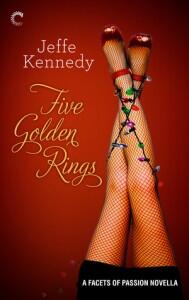
Release Day for Five Golden Rings!!
<<<Shameless
Promo
Post>>>
Five Golden Rings is available separately
or
in the Season of Seduction anthology
Also, the lovely Season of Seduction authors are having a party and giveaway.
There may be baked goods involved.
Chat, Nom, Party!
 Release day for Season of Seduction and Five Golden Rings is tomorrow!
Release day for Season of Seduction and Five Golden Rings is tomorrow!
To celebrate, the five of us with stories in the anthology and sponsoring a chat and giveaway. Whee! Our prizes are copies of the anthology (OF COURSE), plus gift cards to Wolferman’s Gourmet Desserts – order online and they SEND YOU NOMS. It’s brilliant.
You can enter via the Rafflecopter below. Or just stop by the chat and say hi!
Enforced Peace
 A bit of found art – or found cuteness. This is a neckwarmer bunny that I’d set aside. When I walked past later, it struck me just how serendipitously it had fallen, making a very peaceful tableau.
A bit of found art – or found cuteness. This is a neckwarmer bunny that I’d set aside. When I walked past later, it struck me just how serendipitously it had fallen, making a very peaceful tableau.
More peace is always good.
In the mornings, when I feed the kitties, I stay to watch them eat. If I don’t, Jackson – younger, faster, and more ravenous – will finish his and head over to Isabel’s bowl. He’ll nudge her out of the way and, remarkably, she’ll let him. I keep thinking this will change as he’s no longer a kitten, but he’s at a year and a half now and she still cuts him that baby slack. So I stay and watch, keeping him away until she’s done.
She’s a delicate eater, precise and unhurried. It can take a while for her to finish. I make my coffee, take my vitamins, but then I have to simply wait. Isabel is also our guard cat and she hates any disturbance while she eats. Kitchen chores like unloading the dishwasher or doing dishes are simply out of the question. Once clank of a plate and she’s out of there. One turn of my back, Jackson will dive in and she won’t come back.
Once I tried bringing my laptop in, so I could begin dealing with email for the day, but it diverted my attention too much and Jackson stole the moment.
Thus, I’m forced to be quiet and still. Sometimes I look out the kitchen window to the back garden – a view I rarely take in, because any other time I’m in the kitchen I’m on task. Though I begrudged the time to begin with, it’s become one of my few “doing nothing” moments of the day.
Something I probably need more of.
Excerpt Monday Triple Bonus! Season of Seduction by Christine D’Abo, Jodie Griffin & Jeffe Kennedy
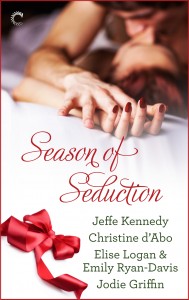 It’s Excerpt Monday over at the Contemporary Romance Cafe! Today is a special triple bonus, with excerpts from three of the stories in the Season of Seduction anthology
It’s Excerpt Monday over at the Contemporary Romance Cafe! Today is a special triple bonus, with excerpts from three of the stories in the Season of Seduction anthology
